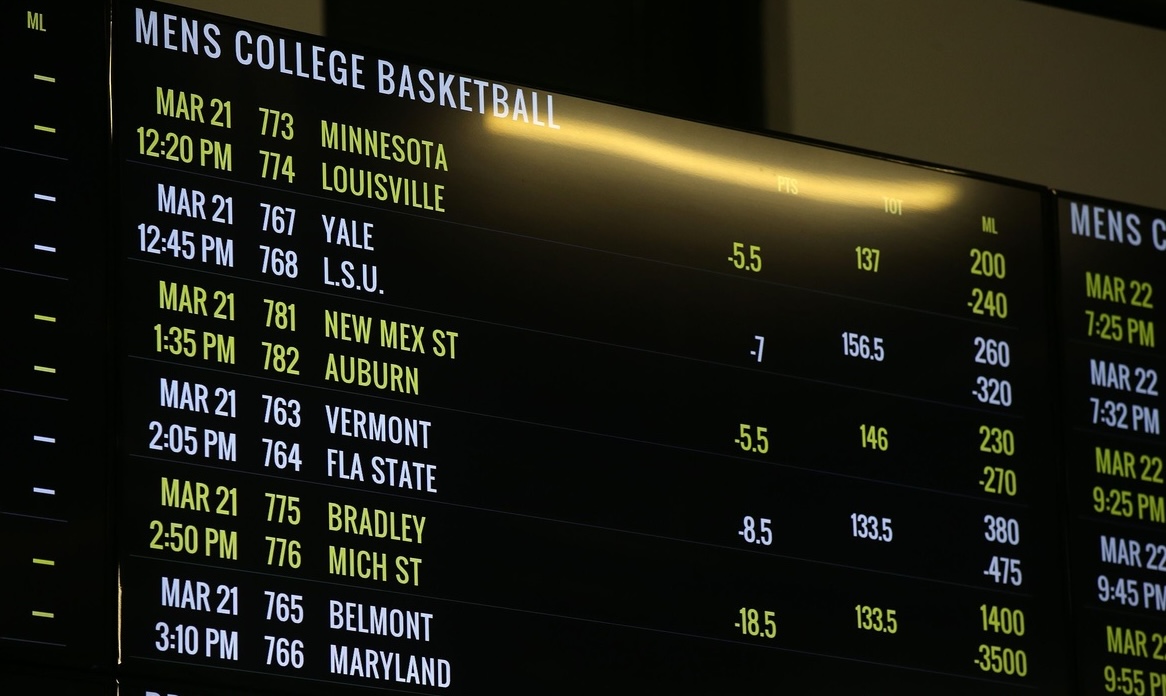Six years out from the widespread legalization and acceptance of sports betting in the United States, the sports world has been plagued over and over by scandals. A wave has hit in 2024, from Shohei Ohtani’s interpreter to Jontay Porter to most recently, the Notre Dame men’s swimming team. Now, a new study by researchers at BYU, Kansas, and Northwestern is linking sports betting with long-term negative financial consequences for gamblers.
The researchers used credit and debit card transaction data from 2010 to September 2023 to see how people spent their money, and they found a link between an increase in sports betting with a decrease in long-term financial planning.
“People are basically taking away money from long-term investments, and they’re spending it more in the present,” Scott Baker, a co-author and a finance professor at Northwestern’s Kellogg School of Management, tells Front Office Sports. “But then we also see that they are more, maybe, exposing themselves, to some extent, to more financial instability or financial fragility, kind of increasing amounts of overdrafts, running up more debt on their credit card, and things like that.”
The July 9 paper finds that for every dollar spent on sports betting, net investments go down by slightly over two dollars.
“We’re basically finding that this is not just a reorganization of people’s entertainment spending, but that it’s kind of affecting other parts of their financials, and maybe more of their long-term financials than we may have maybe hoped,” Baker says.
The links were especially strong among people who were already more prone to quicker, riskier ways to make money or were already prone to financial issues like overdrafts or overspending. The paper calls these “financially constrained” and “vulnerable” households.
“The legalization of sports betting has far-reaching implications for household financial behavior and health. Our results show that not only does sports betting lead to increased betting activity, but it also leads to higher credit card balances, less available credit, a reduction in net investments, and an increase in lottery play,” the paper concludes. “These findings suggest that while sports betting offers new avenues for state revenue, it also introduces significant financial risks to local residents, especially for already constrained households.”
Another similar study published Aug. 2 used credit bureau data to see whether increased sports betting can impact credit scores. It found that credit scores decreased and bankruptcies skyrocketed in states that legalized sports betting, especially among young men in lower-income counties. Baker says he sees that paper as complementary to his own.
“In as much as a lot of states and the federal government want to encourage people to maybe save more for their retirement or for longer-term things and to kind of reduce buildup of debts and overdrafts and things like that, this might be at least one piece of evidence that has to be taken into account when thinking about how and when and what sorts of people are able to sports gamble,” Baker says.





![[Subscription Customers Only] Jul 13, 2025; East Rutherford, New Jersey, USA; Chelsea FC midfielder Cole Palmer (10) celebrates winning the final of the 2025 FIFA Club World Cup at MetLife Stadium](https://frontofficesports.com/wp-content/uploads/2026/02/USATSI_26636703-scaled-e1770932227605.jpg?quality=100&w=1024)



![ESPN Bet broadcasts inside the PGA Tour Studios building in Ponte Vedra Beach, Florida, on March 14, 2025. [Clayton Freeman/Florida Times-Union]](https://frontofficesports.com/wp-content/uploads/2026/02/USATSI_25668497_168416386_lowres-1-scaled.jpg?quality=100&w=1024)







